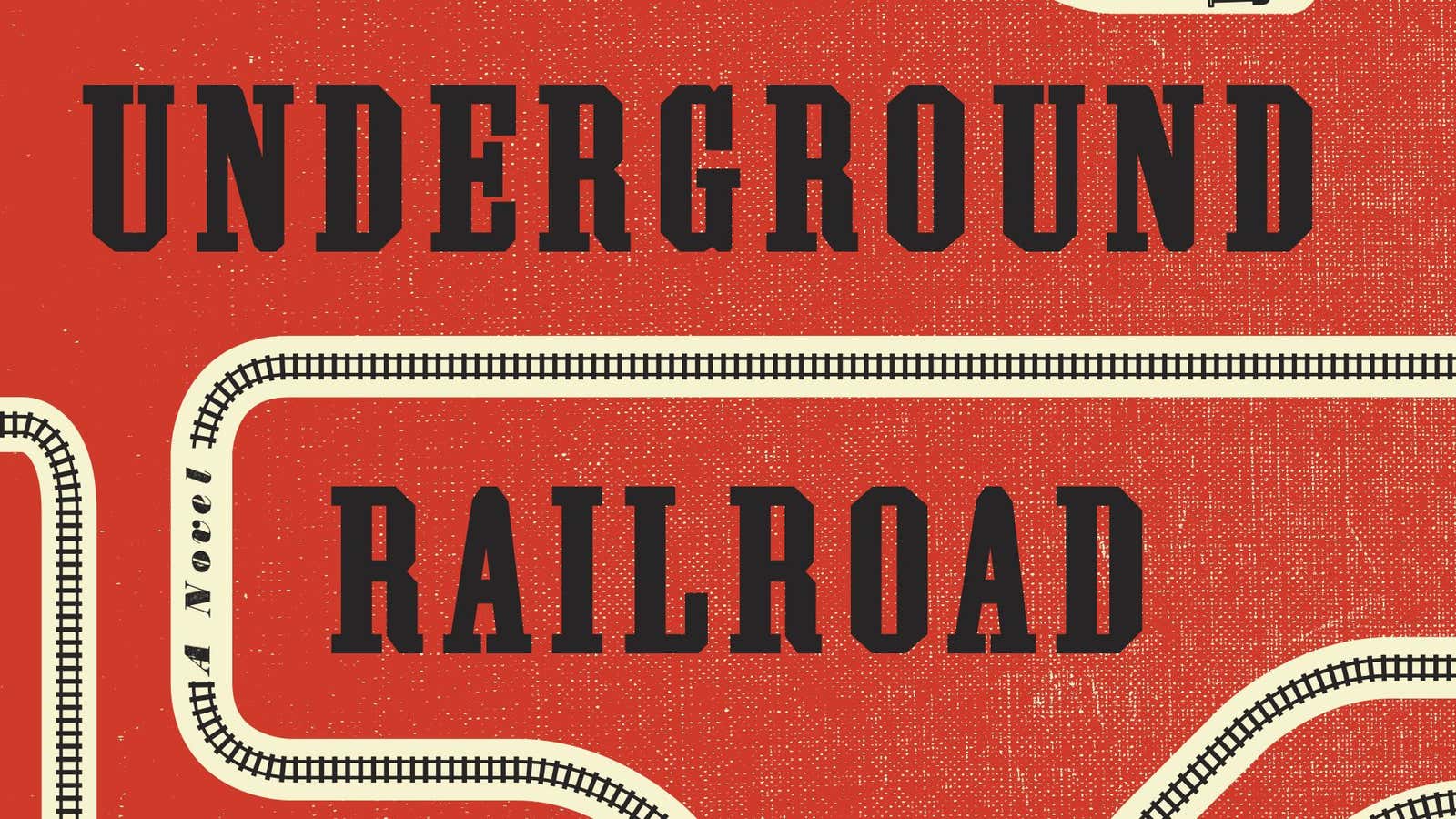Last year, Colson Whitehead’s The Underground Railroad was the talk of the literary town. It was published weeks head of schedule, Oprah endorsed it, and it won the US National Book Award for fiction. But Whitehead said recently that it was for years an intimidating project, one he was afraid to touch.
At an event on Feb. 16, hosted at New York’s 92nd Street Y, Whitehead and George Saunders each read from their most recent books. The American authors revealed that they had something in common besides their MacArthur “Genius” grants: Both of their novels—Whitehead’s sixth, and Saunders’s first—had been gestating for years, and both writers had been putting them off out of fear of failure.
The Underground Railroad is about Cora, a slave who escapes from a plantation in Georgia, and rides an actual railroad around the country seeking freedom. At the reading, Whitehead recalled first hearing about the Underground Railroad—in reality a network of abolitionists who harbored fugitive slaves—when he was in the fourth grade.
“I envisioned a little subway beneath the earth,” he said, “Because I was a New Yorker.” Sixteen years ago, this idea returned to him as a premise for a story, but he left it on the back-burner, afraid of the project. “Each time I finished a book, I would think, ‘Am I ready?'” he said. “The answer was always no.”
Three years ago, Whitehead was working on another book, about a writer living in Brooklyn going through a midlife crisis, but he had some reservations about it. After having conversations with his team—his wife, his agent, his psychiatrist, and his editor—Whitehead was convinced that it was time to give the Underground Railroad a try.
“I realized I was putting it off for so long, it was probably the thing I should be doing,” said Whitehead. “If it seems scary, maybe that’s the thing you should be working on, not the book you know you can do.”
Saunders had a similar experience. The acclaimed short-story writer read from his debut novel, Lincoln in the Bardo, released Feb. 14. The book takes place from multiple perspectives as Abraham Lincoln deals with the death of his 11-year-old son Willie by visiting and entering the crypt.
Saunders said at the event that he first thought of the idea for the novel 20 years ago, but put it off because Lincoln is such a towering figure in American history. “Then a couple years ago, I thought, ‘Man, you’re not getting any younger, and on your own gravestone you don’t want it to say, ‘Avoided the thing he most wanted to do,'” said Saunders. “Probably not the best,” he added.
